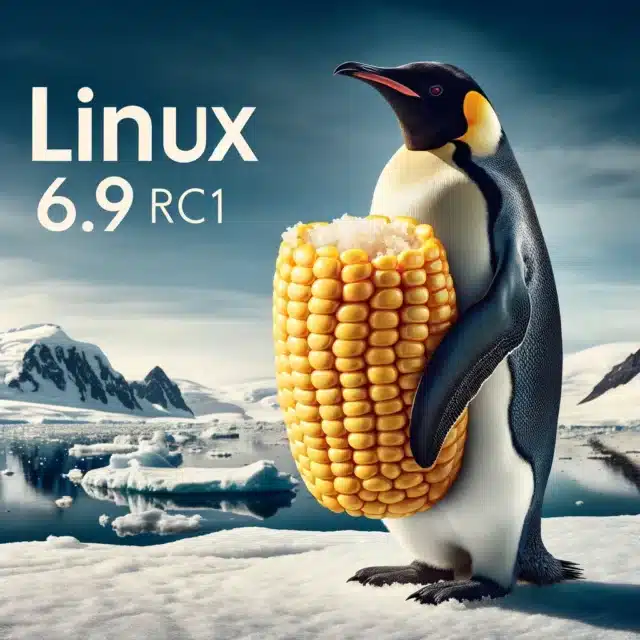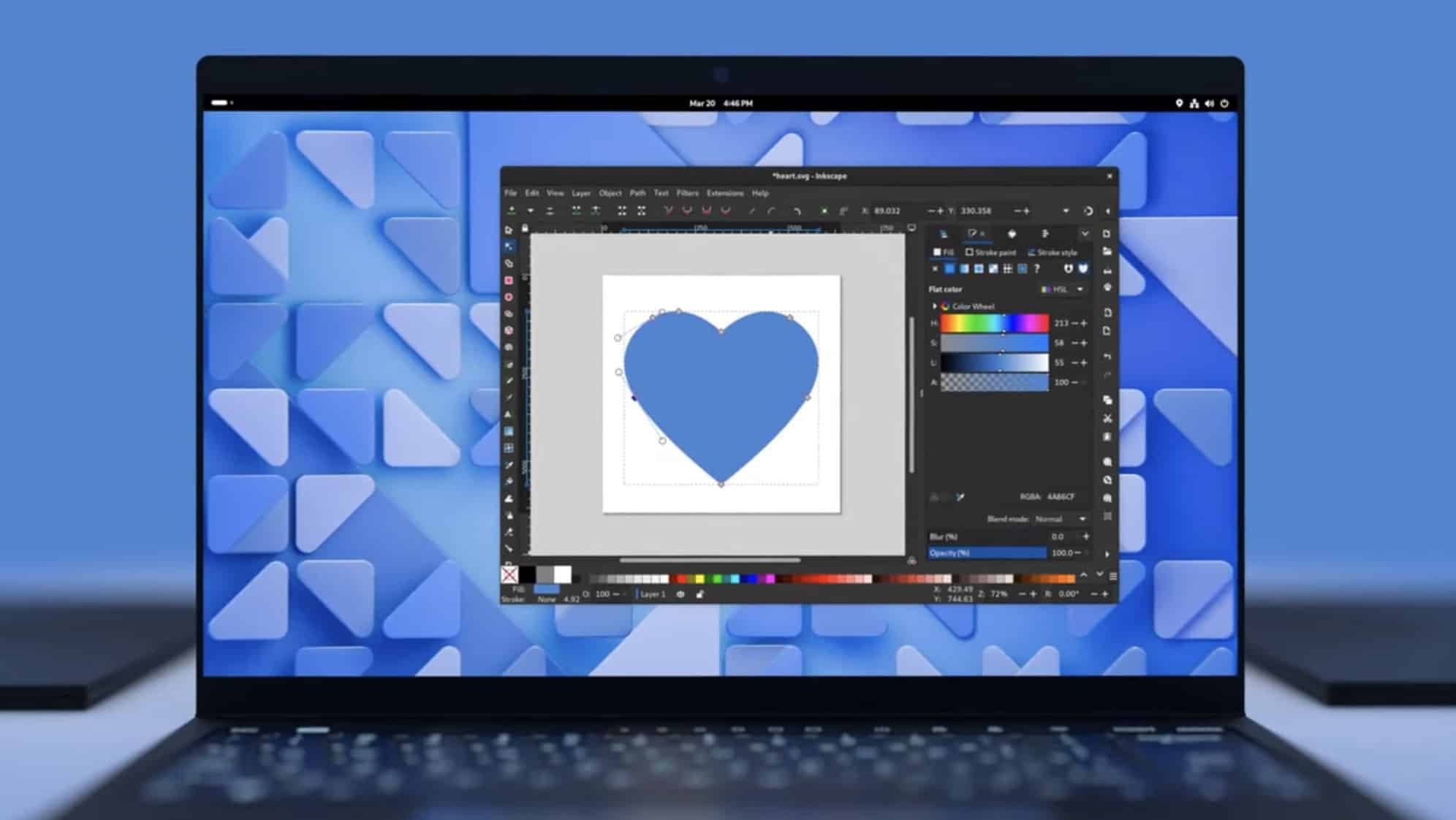
Addressing open source security gaps [Q&A]
Organizations face significant challenges with open source security, primarily due to the rapid pace at which open source vulnerabilities are identified compared to the slower pace of remediation efforts.
This discrepancy creates a scenario where security teams are constantly trying to catch up, struggling against an ever-growing list of vulnerabilities that pose serious threats to their systems.

Deepin Linux V23 RC: A Windows 11 alternative from China
Deepin, a Linux-based open-source desktop operating system developed in China, has announced the release candidate (RC) of its latest version, Deepin V23 (download here). This RC version introduces numerous new features and improvements, aiming to attract users who are considering a switch from Microsoft Windows 11. However, as this is not the final release, potential switchers should wait for the stable version to ensure a seamless transition.
The Deepin V23 RC comes with a host of new features that enhance usability and user experience. The installer has been optimized with improved UI details, updated carousel images, and a trial mode for users to experience the system without installation. It also reverts pre-installed applications to deb versions, supports 14th generation U terminal devices, and provides dual kernel options of 5.15 and 6.6.

A practical solution to the AI challenge: Why it matters that the AI Safety Institute has embraced open source
To be a world leader in AI, the UK must leverage its position as Europe’s number one in open source software. As the PM said on Friday, open source “creates start-ups” and “communities”. The UK’s open source community has flourished under the UK tech sector radar in recent years. OpenUK’s 2023 report showed 27 percent of UK Tech Sector Gross Value Add was attributable to the business of open source from the UK.
On the back of the AI Safety Summit last November, the UK has not taken the European Union’s route to a legislative solution. We will soon see the outcome of the EU’s gamble in being the first in the world to legislate. The very prescriptive legislation will likely be out of date before it is in use and this may engender regulatory capture in AI innovation in the EU. Few beyond big tech will be able to manage the compliance program necessary to meet the regulation. The risk is obvious and real.

Gentoo Linux partners with Software in the Public Interest (SPI)
Gentoo Linux has become an Associated Project of Software in the Public Interest (SPI), following a formal invitation by SPI’s Board of Directors. SPI is a non-profit corporation dedicated to supporting open source software and hardware projects by providing fiscal sponsorship services such as accepting donations, holding funds and assets, and more. Importantly, SPI holds a 501(c)(3) status in the U.S., meaning donations made to SPI and its supported projects are tax-deductible for U.S. donors.
Gentoo Linux excels as a Linux distribution but has faced challenges in maintaining its non-profit status in the U.S. The Gentoo Foundation, while a non-profit in New Mexico, is considered a for-profit entity at the federal level. Transitioning directly to a federally recognized non-profit would be complex and costly.

Accepting generative AI into enterprise software development [Q&A]
The development community has been quick to embrace generative AI for its productivity potential. But at the same time it raises concerns for enterprises around IP/ownership, security, compliance and more.
We talked to Steve Martinelli, director of developer advocacy and community at Equinix, to discuss the similarities between GenAI and open-source software's acceptance journey, and how we might tackle the unique challenges it presents.

Ubuntu Linux LTS releases get up to 12 years of support
Canonical, the company behind the popular Ubuntu operating system, has announced a significant extension to the support lifecycle of its long-term support (LTS) releases. The new Legacy Support add-on for Ubuntu Pro subscribers will now provide security maintenance and support for an impressive 12 years, extending the previous 10-year commitment.
This enhancement is available starting with Ubuntu 14.04 LTS and will benefit both enterprises and individual users who rely on the stability and security of Ubuntu for their critical systems. By default, Ubuntu LTS releases receive five years of standard security maintenance. However, with Ubuntu Pro, this is expanded to 10 years for both the main and universe repositories, offering access to a broader range of secure open-source software.

Linux 6.9-rc1 provides a glimpse into the future of the open source kernel
Linus Torvalds has officially announced the release of Linux 6.9-rc1, marking the end of the merge window for this version. As usual, the update brings a ton of changes, with a significant portion attributed to AMD GPU header files. But let's not get bogged down by the sheer volume of these updates; the real excitement lies in the core improvements that promise to enhance the kernel's performance.
Two major updates steal the spotlight in this release: the timer subsystem and the workqueue subsystem. The timer subsystem has undergone a substantial rewrite, introducing per-CPU timer wheels. This enhancement is poised to boost the performance of timers, which is especially crucial for networking operations. On the other hand, the workqueue subsystem now supports BH workqueue support, providing a much-needed alternative to the long-deprecated tasklet interface.

GNOME 46 Kathmandu: Elevating the Linux desktop environment with new features and enhancements
The GNOME project has announced the release of GNOME 46, codenamed “Kathmandu.” This latest version of the Linux desktop environment brings a host of enhancements and new features. There are even five new apps: Letterpress, Switcheroo, Decibels, Fretboard, and Railway.
The Files app has received significant updates, including improved feedback for long-running file operations, a dynamic progress section, and instant switching between list and grid views. Other improvements include searchable preferences, detailed date and time display, quick access to the location entry, and better network discovery.

Centralizing observability saves businesses time and money
Observability is key to allowing organizations to manage their systems effectively, helping improve performance, cut workloads and save money.
Grafana has released its latest Obervability Survey, based on responses from over 300 industry practitioners which shows that 70 percent of teams are using four or more observability technologies.

OpenTelemetry -- what is it and why does it matter? [Q&A]
When OpenTelemetry was first released in 2019, there was a good deal of excitement about the prospect of a single standard set of telemetry data for the entire modern software stack.
OpenTelemetry set out to make robust, portable telemetry a built-in feature of cloud-native software, and give developers and platform engineers a common mental model for all the telemetry types.

Tails 6.0 Linux distribution: The ultimate privacy shield to thwart 'Big Brother'
Tails 6.0, the newest version of the privacy-focused Linux distribution, is now available for download. It is notable for being the first version of Tails to be based on Debian 12 (Bookworm) and use the GNOME 43 desktop environment. This update also introduces a host of new features, security enhancements, and usability improvements, alongside updated versions of the majority of the software included in Tails.
In Tails 6.0, users will find a new error detection feature for the Persistent Storage, which alerts them about errors when reading or writing from the Tails USB stick. This helps in diagnosing hardware failures and prompts users to backup their Persistent Storage before it's too late. The update also brings automatic mounting of external devices. When an external storage device is plugged in, Tails 6.0 mounts it automatically, and if the device contains an encrypted partition, it offers to unlock the encryption automatically.

74 percent of codebases have high-risk open source vulnerabilities
The percentage of codebases with high-risk open source vulnerabilities -- those that have been actively exploited, have documented proof-of-concept exploits or are classified as remote code execution vulnerabilities -- increased from 48 percent in 2022 to 74 percent in 2023, according to new research.
The Open Source Security and Risk Analysis (OSSRA) report from Synopsys is based on findings from more than 1,000 commercial codebase audits across 17 industries. While codebases containing at least one open source vulnerability remain consistent year-on-year at 84 percent, significantly more codebases contained high-risk vulnerabilities in 2023.

HexChat open-source IRC client is forking dead
In a surprising turn of events, the popular IRC client HexChat has announced its final release, 2.16.2, marking the end of an era for the open-source project. The release, which was made public on February 9, 2024, includes a handful of minor fixes and features that have been in the works over the past two years.
The decision to cease development comes from the project's lead, who revealed that HexChat has been largely unmaintained for several years. Despite the lack of active maintenance, the client continued to be a favorite among many in the IRC community. However, with no one stepping up to take over the reins, the time has come to say goodbye.

Putting a value on open source -- how much is free software worth?
According to a new report by Harvard Business School and University of Toronto researchers,open source contributes trillions of dollars to the global economy. If you look at the direct supply-side valuation for widely used open source software, the valuation is $4.15billion. If you look at the demand-side figures, which cover all the indirect value generated by use of open source, open source software is worth $8.8trillion. When global gross domestic product for 2024 is estimated to be $109trillion, the value of open source comes into far sharper view.
Alongside this valuation, the report authors estimate that -- if open source did not exist -- companies would have to spend around 3.5 times more on their IT and technology investments to get the same results.

Don't watch Taylor Swift's boyfriend Travis Kelce play NFL Football: Install Debian Linux 12.5 during Super Bowl LVIII instead
Super Bowl Sunday may be tomorrow, but for Linux nerds, there is something far more exciting than watching the Kansas City Chiefs and San Francisco 49ers play championship football. You see, The Debian project has just released the fifth update to its stable distribution, Debian 12, codenamed “Bookworm.” And so, if you don’t care about NFL Football, Taylor Swift, or her boyfriend Travis Kelce, installing this Linux distribution could be a fun thing to do instead of watching “the big game.”
Version 12.5 of the operating system primarily focuses on implementing corrections for security vulnerabilities and making a few adjustments to address significant issues. Detailed security advisories, which have been previously published, are referenced in this update for users' convenience.
